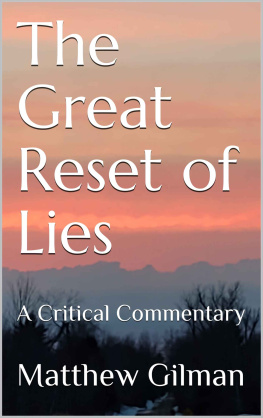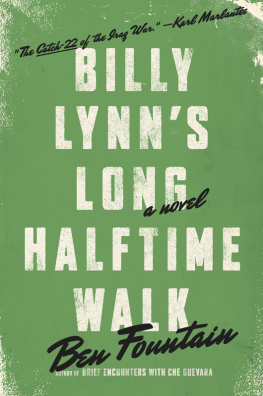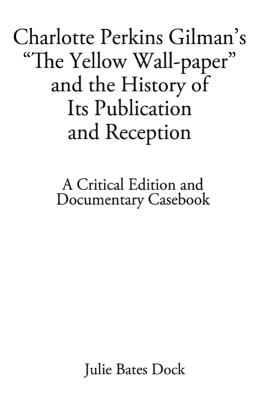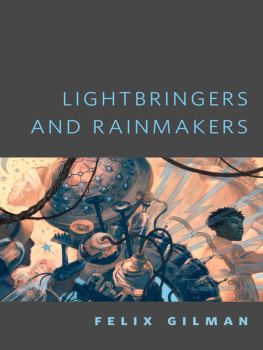THE HELL OF WAR COMES HOME
THE HELL
OF WAR
COMES
HOME
IMAGINATIVE TEXTS
FROM THE CONFLICTS IN
AFGHANISTAN AND IRAQ
OWEN W. GILMAN JR.
UNIVERSITY PRESS OF MISSISSIPPI JACKSON
www.upress.state.ms.us
Designed by Peter D. Halverson
The University Press of Mississippi is a member of the Association of American University Presses.
Excerpts from Letter Composed During a Lull in the Fight by Kevin Powers. Copyright 2014 by Kevin Powers. Reprinted by permission of Little, Brown and Company. All rights reserved.
Excerpts from The Stick Soldiers. Copyright 2013 by Hugh Martin. Reprinted with the permission of The Permissions Company, Inc. on behalf of BOA Editions, Ltd., www.boaeditions.org.
Excerpts from Shortly Thereafter by Colin D. Halloran, published by Main Street Rag Publishing Company, 2012. Used with permission.
Excerpts from Here, Bullet, copyright 2005 by Brian Turner, and Phantom Noise, copyright 2010 by Brian Turner. Reprinted with the permission of The Permissions Company, Inc. on behalf of Alice James Books.
Excerpts from The Iliad, by Homer. Translated by Richmond Larrimore. Copyright 1951 by The University of Chicago. Reprinted by permission of The University of Chicago Press.
Copyright 2018 by University Press of Mississippi
All rights reserved
Manufactured in the United States of America
First printing 2018
Library of Congress Cataloging-in-Publication Data
Names: Gilman, Owen W. author.
Title: The hell of war comes home: imaginative texts from the conflicts in Afghanistan and Iraq / Owen W. Gilman Jr.
Description: Jackson: University Press of Mississippi, 2018. | Includes bibliographical references and index. |
Identifiers: LCCN 2017035685 (print) | LCCN 2017057568 (ebook) | ISBN 9781496815774 (epub single) | ISBN 9781496815781 (epub institutional) | ISBN 9781496815798 (pdf single) | ISBN 9781496815804 (pdf institutional) | ISBN 9781496815767 (cloth: alk. paper)
Subjects: LCSH: American literature21st centuryHistory and criticism. | Afghan War, 2001Literature and the war. | Afghan War, 2001Motion pictures and the war. | Iraq War, 20032011Literature and the war. | Iraq War, 20032011Motion pictures and the war. | War filmsUnited StatesHistory and criticism. | War stories, AmericanHistory and criticism.
Classification: LCC PS231.A34 (ebook) | LCC PS231.A34 G55 2018 (print) | DDC 810.9/3587393dc23
LC record available at https://lccn.loc.gov/2017035685
British Library Cataloging-in-Publication Data available
THIS STUDY IS DEDICATED TO ALL PEOPLE WHO HAVE SUFFERED IN ANY WAY FROM WAR AND TO THOSE WHO HAVE USED THE POWERS OF IMAGINATION TO INCREASE OUR COLLECTIVE UNDERSTANDING OF WAR.
CONTENTS
PART I:
THE LONG ARC OF WAR EXPERIENCE FOR AMERICANS
PART II:
AMERICAS RECENT WAR EXPERIENCE COMES HOME IN IMAGINATIVE TEXTS
PART III:
VETERANS LOST AS DISTRACTIONS RULE IN FANTASYLAND AMERICA
ACKNOWLEDGMENTS
Many people have made generous and insightful contributions to this study as it evolved over the past several years. I deeply appreciate all of the help that has been provided to me in so many different ways. At the University Press of Mississippi, I have benefited enormously from the steady and wise editorial guidance of Vijay Shah, and as the project moved to completion, Lisa McMurtray and Kristi Ezernack were immensely helpful in overseeing the production side of the whole editorial process. Lisa Williams provided keen copyediting work as the manuscript was made ready for printing and Christine A. Retz was most efficient and helpful in developing the index. The outside reviewers engaged by the press all offered useful insights and suggestions with regard to revisions that would make the final result more satisfying.
At Saint Josephs University, where I have been teaching for nearly forty years, I am always grateful for the lively wit and warm support of my colleagues in English as we talk about our various endeavors in scholarship, including The Hell of War Comes Home. They could always be counted on for good suggestions regarding the broad scope of the study and also about specific details that are addressed. Outside of English, two wonderful colleaguesPaul Aspan, Associate Provost for Academic and Faculty Support, and Terry Furin, Coordinator of International Education Programsboth kindly read through the whole manuscript and added their insights on the themes and the style of the project. Saint Josephs University granted me a year of sabbatical leave (20122013), which was enormously important in providing time for the major research effort needed for this study, and for that support, I am naturally thankful.
My wife and two sons contributed invaluable professional expertise as the project moved through its final stage of development. Marys editorial experience helped make the title and the chapter descriptions much clearer and more effective; Andrew offered fine editing input on the whole manuscript as it went through final revision; and John brought his graphic design talents to bear in development of the cover. My debt to them is particularly greatfor this endeavor and for so much else.
Finally, behind all the words of this study are the imaginative texts crafted with abiding care by creative people who have provided us with the best keys available as we try to understand war in all of its implications. I applaud them for everything that guided my own search for understanding in this study.
PART I
THE LONG ARC OF WAR
EXPERIENCE FOR AMERICANS
A Brief Introduction
Veterans Face the Challenge of American Fantasyland at War
America is a nation born of war. From the beginning centuries ago, it was with uswar against indigenous tribes, against rival colonial empires, and finally in North America, the great war of Independence, with British rule replaced by self-governance. Only by war could this have happened, and as a consequence, the stamp of war is indelible upon America. The loudest and most boisterous secular holiday in America is the Fourth of July; every year on that date Americans are called to remember how they came to be independent, in charge of their destinyentirely because a group of very brave and determined men put their lives on the line, acquiescing in the necessity of war, to secure liberty and justice for themselves and for posterity. War was with Americans in the beginning.
War remains with Americans. In 2012, during the initial stage of this study, the war in Iraq seemed to have reached a clear endpoint with the withdrawal of American combat forces, an action dictated by the Status of Forces Agreement signed by President George W. Bush on 14 Dec. 2008; at the same time, the war in Afghanistan had a projected timetable for American withdrawal. Thus, there would be a return to peace, to a time without war. However, as years moved along, the Afghanistan conclusion date kept getting pushed further into the futureeventually to enter into a thoroughly indefinite time frame.
While the war situation in Afghanistan persisted, the forces of ISIS (Islamic State of Iraq and Syriaa movement that President Obama typically called ISIL, Islamic State of Iraq and the Levant, thereby denoting a significantly broader region of concern) took over much of northern and western Iraq (Fallujah fell early in 2014, with Mosul being captured in June of 2014), all of which constituted a devastating development for American veterans The fight to regain control of Mosul, Iraqs second-largest city, took place in the summer/fall of 2016 and winter of 2017, thirteen years after the American-led invasion to topple Saddam Hussein, and in the aftermath of fighting, deep concerns persist as to the ability of the Iraqi government to provide safety for the residents of Mosul, as well as other areas of the country.






